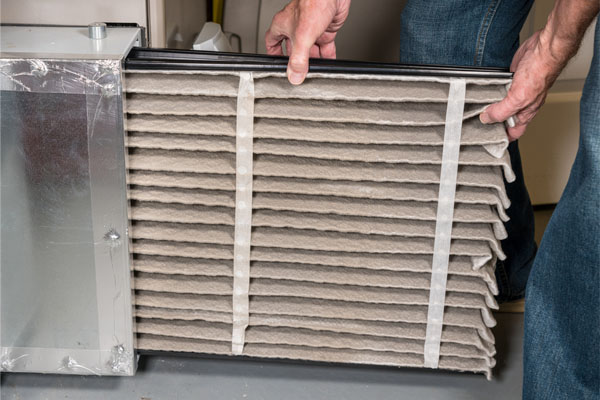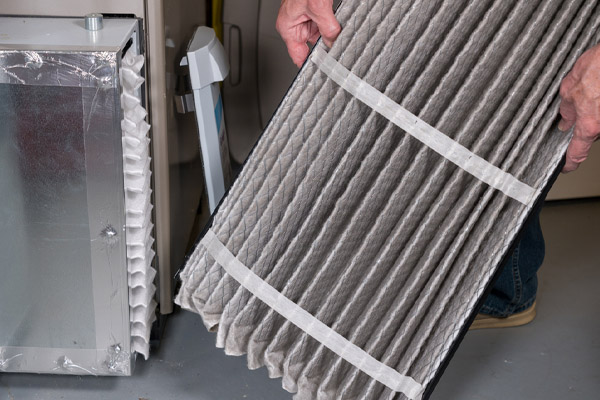Having a clean furnace filter is essential for optimal home heating performance. Without a filter, dirt and dust particles can clog the furnace, causing it to run inefficiently. But how often should you replace your filter, and what type should you use? Everything you need to know about furnace filters is right here. Keep reading to find out more.
What is a furnace filter?

So, what is a furnace filter? A furnace filter is a crucial component of any forced air heating and cooling system. The main function of a furnace filter is to remove dirt, dust, and other airborne particles from the air that circulates through the HVAC system. The filter traps these particles as the air passes through it, preventing them from entering the air ducts and ultimately your living spaces. A clean furnace filter can help ensure that your HVAC system operates efficiently and effectively while also improving indoor air quality and reducing airborne allergens.
Furnace filters come in a variety of types and sizes, each with its own unique benefits and drawbacks. Some common types of furnace filters include fiberglass filters, pleated filters, and washable filters. Additionally, there are also higher-grade furnace filters, such as high-efficiency particulate air filters (HEPA), which can provide superior filtration and are designed to filter out extremely small particles. The choice of which type of filter to use typically depends on various factors, such as the level of air filtration required and the amount of maintenance required to keep the filter clean.
What should you look for in a high-quality filter?
When selecting a furnace filter, there are several factors to keep in mind. First, look for a high MERV rating – this measures the filter's ability to trap particles, with higher numbers indicating better filtration. Look for a MERV rating between 8-12 for optimal filtration without restricting airflow too much.
Another key factor is the filter's material – pleated filters are generally more effective than flat ones because they offer a larger surface area for catching particles. They're also sturdier and tend to last longer, making them a more cost-effective option in the long run. Additionally, think about your lifestyle and specific needs— some filters are specially designed to help alleviate allergies and reduce odors, while others are more general-purpose.
How do you care for furnace filters?

Caring for furnace filters is an essential part of keeping your furnace running efficiently and avoiding costly repair bills. When installed correctly, furnace filters can trap dust and other particles, preventing them from entering your home, improving your indoor air quality, and potentially preventing damage or health problems. However, if not cared for properly, these filters can become clogged with debris and fail to perform their intended purpose. To ensure that your furnace filters are functioning optimally, they must be replaced or cleaned on a regular basis.
The frequency of filter changes or cleaning will depend on the type of filter you use. Disposable filters should be replaced at least every three months, although this may need to be done more often depending on the level of air pollutants in your home. Reusable filters can be vacuumed or washed with mild soap and water but should be replaced every six to twelve months. It is important to check the manufacturer’s guidelines for filter replacement or cleaning for your specific model of furnace.
When replacing a filter, it is important to make sure that it is the correct size for your furnace. An improperly sized filter can reduce airflow or cause the furnace to overheat, leading to breakdowns or other problems. Installing the filter with the correct side facing the furnace is also important, as this will ensure that dust and other particles are trapped as they should be. If you are unsure of the proper installation, contact a qualified technician to ensure that it is done correctly.
The furnace filter plays a significant role in maintaining the air quality in your house and prolonging the life of your HVAC unit. Regular changing of the furnace filter is a simple and cost-effective way to ensure the safety, efficiency, and longevity of your home heating system.






